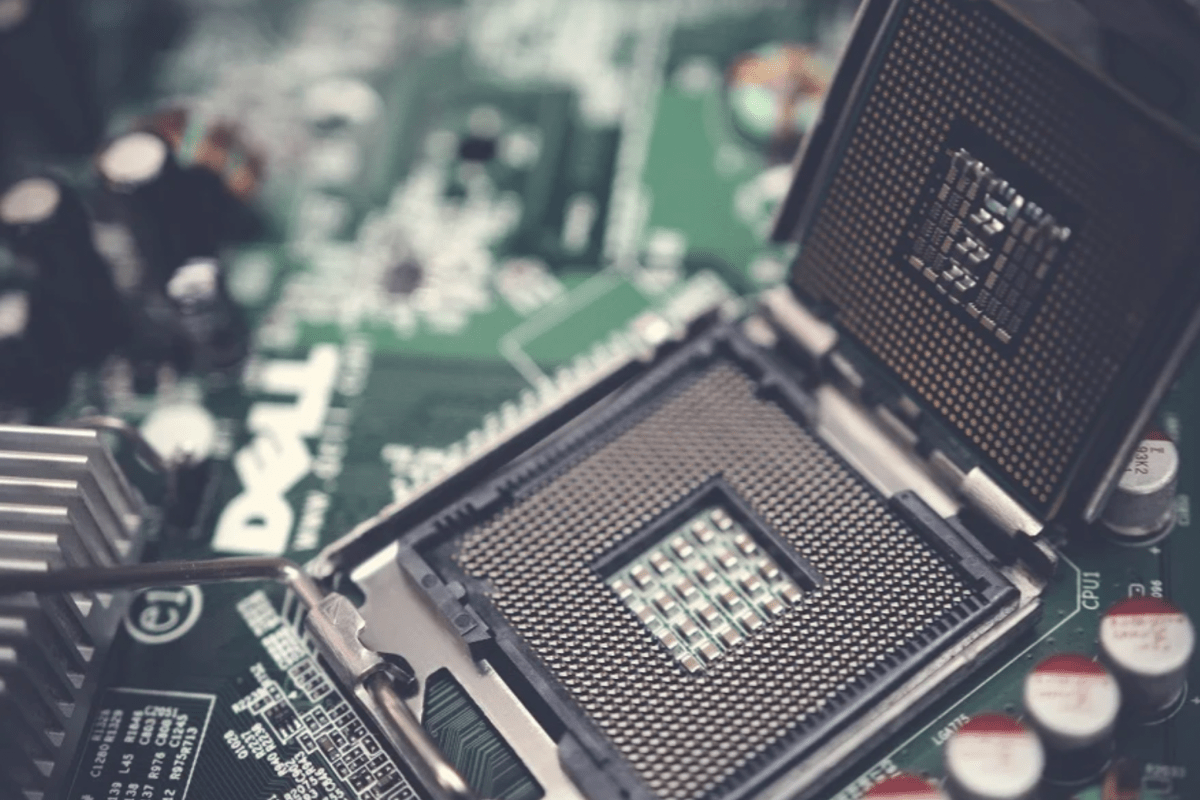[ad_1]
It’s an old expression — one man’s junk, is another man’s treasure.
You might say that’s the case with China’s semiconductor makers, who are snapping up used chipmaking machines as fast as they can buy them.
The surprising thing is where they’re getting them from — Japan.
According to a report in Nikkei Asia, the rush to produce homegrown products in China amid US-Sino trade tensions is driving up equipment prices in Japan’s massive secondary market.
Japanese used equipment dealers say prices are up by 20% from last year.
The Trump administration imposed new sanctions on SMIC, the largest semiconductor manufacturer in China, in September 2020 to prevent it from purchasing new chip-making equipment.
It also added the company to the Entity List to make it even harder for other businesses to supply it with American-developed technology.
However, older-generation machines are not restricted, giving Chinese players clear and unfettered access.
For Chinese buyers, it’s a way to skirt US restrictions, and, give the finger to Uncle Sam.
For Japanese sellers, business is business.
It doesn’t make any difference; they’re making significant profits and selling through stock they otherwise would’ve sat on.
Meanwhile, as chip demand rises worldwide, this, in turn, could prolong the looming shortage of semiconductors used in automobiles, Nikkei Asia reported.
Automakers across the globe are expected to lose billions of dollars in earnings this year due to a shortage of semiconductor chips, a situation that’s expected to worsen, CNBC reported.
Consulting firm AlixPartners expects the shortage will cut US$60.6 billion in revenue from the global automotive industry this year.
Semiconductor chips are extremely important components of new vehicles for areas like infotainment systems and more basic parts such as power steering and brakes.
Depending on the vehicle and its options, experts say a vehicle could have hundreds of semiconductors. Higher-priced vehicles with advanced safety and infotainment systems have far more than a base model, including different types of chips.
One analyst even suggested that the demand for chips between automakers could turn into a “knife fight.â€
“Prices on used machines are rising every year,†said a source at a major leasing company. “Over the past year, the prices have gone up 20% on average.â€
Prices on core equipment, such as lithography systems, have risen by a factor of three.Â
Lithography is a critical step in chipmaking, where light is used to transfer circuit patterns to a film, which is then used to make individual microprocessors.
A Sumitomo Mitsui Finance and Leasing source says prices have gone up tenfold compared with right after the 2008 financial crisis.Â
“Nearly 90% of used machines appear to be headed to China,†said a source at Mitsubishi UFJ Lease & Finance.
Some of that equipment is being used on production lines, but Nikkei Asia said that some of it is merely being hoarded just in case it could prove useful in the future.
Demand is also brisk for driver ICs used for TV and PC displays, and power management chips used in connected home appliances.
As a result “prices on immediately available used machines are higher than those for brand-new machines,†said a source at Hitachi Capital.Â
“Machines that were basically worthless several years ago are now selling for 100 million yen [$940,000],†according to a source at a used equipment dealer.
Bloomberg also reported earlier this month that “Chinese businesses bought almost US$32 billion of equipment used to produce computer chips from Japan, South Korea, Taiwan and elsewhere†in 2020.
That was “a 20% jump from 2019,†according to the report, and that growth could continue.
“Machines we bring in are shipped directly to the next plants,†said an official at Sumitomo Mitsui Finance and Leasing.
“They literally disappear instantly.â€
The end goal for China is self-sufficiency, and companies in the country have made progress on their own chip-making equipment, so they won’t have to rely on American technologies.
China’s is working to develop its own CPUs, GPUs, memory and other components, but it still trails significantly in high-end, advanced chips.
Until it can replace American chip-making equipment entirely — assuming President Biden won’t budge on these imposed restrictions — the country’s going to have to continue to stockpile these once-outdated machines.
Meanwhile, a US national security commission on Monday recommended Congress tighten up “choke points†on chipmaking technology to prevent China from overtaking the US in semiconductors, Reuters reported.
The National Security Commission on Artificial Intelligence, led by former Google chairman Eric Schmidt, recommended clamping down on China’s ability to procure the manufacturing equipment needed to make advanced computing chips.
It is claimed such chips are used in surveillance technologies such as facial recognition, however some analysts believe the true nature of US actions is more about killing global competition as part of the Sino-US trade dispute.
Even Microsoft billionaire Bill Gates, the second richest man in the world, has slammed the latest US sanctions.
In an interview with The Guardian, Gates said the economic conflict between the two superpowers could prove a “real setback†to solving some of the biggest global problems, such as poverty and inequality.
“With the US-China relationship, if that really breaks down then that hurts the world economy and hurts the world’s ability to work together,†said Gates.
Much chipmaking equipment comes from US firms which are already subject to American export controls, Reuters reported. But key gear also comes from firms such as Nikon Corp. and Canon Inc. in Japan and ASML Holding in the Netherlands.
The report recommends that the US coordinate with those countries to create a policy of “presumptive denial†in each country for export licenses of advanced chipmaking tools to China.
The report also recommends formalizing into US policy a longstanding regulatory practice of limiting China’s semiconductor industry to two generations behind the US, Reuters reported.
In a statement more reminiscent of Cold War attitudes of the past, one NSCAI official told Reuters:
“China is making an aggressive push to promote authoritarianism around the world.
“It boils down to semiconductors.â€
Sources: Nikkei Asia, JohnsHardware.com, TechSpot.com, Al Awsat, Bloomberg, Reuters, The Guardian, CNBC
[ad_2]
Source link













